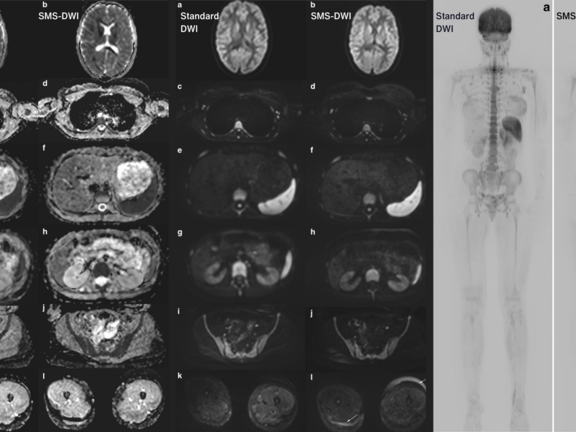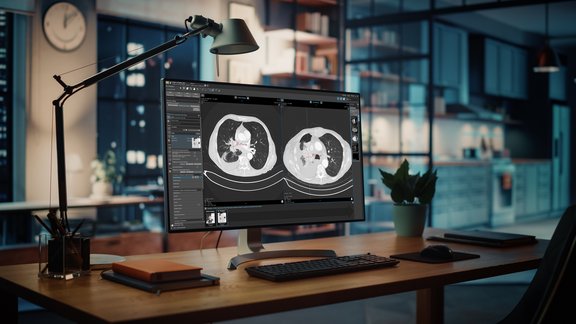As we mark Childhood Cancer Awareness Month, we would like to highlight the progress achieved in the realm of cancer diagnostics. A recent study led by Dr. med. Paul-Christian Krüger and his team from the Universitätsklinikum Jena sheds light on an innovative approach to whole-body MRI in children and adolescents using an advanced sequence that significantly reduces the time needed for the imaging procedure without compromising the quality of the images.
Such steadfast dedication to securing young patients' safety and comfort is truly heartwarming. This commitment motivates researchers to continuously perfect and elevate diagnostic methods while paving the way for progress in the early detection and treatment of childhood cancer.
Learn more about this study with mint Lesion™.

New Technique Speeds Up Whole-Body MRI for Children Without Sacrificing Image Quality, Study Finds
Related Resources
Related Resources

Lung Cancer Screening in Germany – A Turning Point for Early Detection
Few topics are currently as impactful in radiology as lung cancer screening. From 2026, Germany is expected to roll out a nationwide program, marking…

Leave No Data Behind: Commitment to Data Excellence
At Mint Medical, we understand data as a cornerstone for improving patient care and groundbreaking research. Our mission is clear: Leave No Data…

Transform Your Research with the Template Designer
At Mint Medical, we know that organized and high-quality data is the foundation of successful research. That's why we've developed the Template…